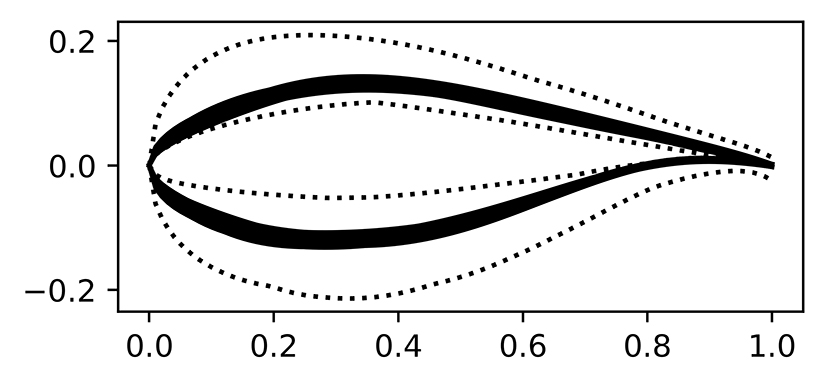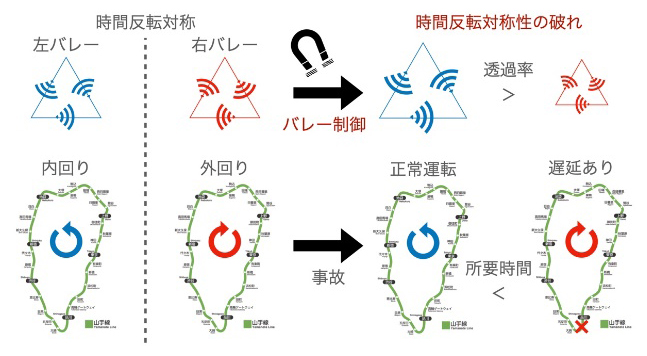2023-10-25 米国国立再生可能エネルギー研究所(NREL)

In this visualization of all the airfoil shapes generated from the invertible neural network for a given design criterion, the dotted lines show the range of all shapes used to train the model.
◆この新しい手法は、エアフォイルの形状とその空力および構造特性の逆関係を学び、デザイナーに目標の性能特性を指定させ、それに対応する形状の空間を迅速に探索できるようにします。研究者はこの新しいツールをオープンソースで提供し、風力タービンのデザインプロセスを加速する可能性にワクワクしており、他の研究分野にも展開できる新たな研究の方向にも期待を寄せています。
<関連情報>
- https://www.nrel.gov/news/program/2023/invertible-neural-network-tool-helps-optimize-airfoil-design.html
- https://arc.aiaa.org/doi/10.2514/1.J060866
翼設計のための可逆的ニューラルネットワーク Invertible Neural Networks for Airfoil Design
Andrew Glaws , Ryan N. King, Ganesh Vijayakumar and Shreyas Ananthan
AIAA Journal Published:3 Mar 2022
DOI:https://doi.org/10.2514/1.J060866
Abstract
The airfoil design problem, in which an engineer seeks a shape with desired performance characteristics, is fundamental to aerodynamics. Design workflows traditionally rely on iterative optimization methods using low-fidelity integral boundary-layer methods as higher-fidelity adjoint-based computational fluid dynamics methods are computationally expensive. Surrogate-based approaches can accelerate the design process but still rely on some iterative inverse design procedure. In this work, we leverage emerging invertible neural network (INN) tools to enable the rapid inverse design of airfoil shapes for wind turbines. INNs are specialized deep-learning models with well-defined inverse mappings. When trained appropriately, INN surrogate models are capable of forward prediction of aerodynamic and structural quantities for a given airfoil shape as well as inverse recovery of airfoil shapes with specified aerodynamic and structural characteristics. The INN approach offers a roughly 100 times speed-up compared to adjoint-based methods for inverse design. We demonstrate the INN tool for inverse design on three test cases of 100 airfoils each that satisfy the performance characteristics close to those of airfoils used in wind-turbine blades. All generated shapes satisfy the desired aerodynamic characteristics, demonstrating the success of the INN approach for inverse design of airfoils.



